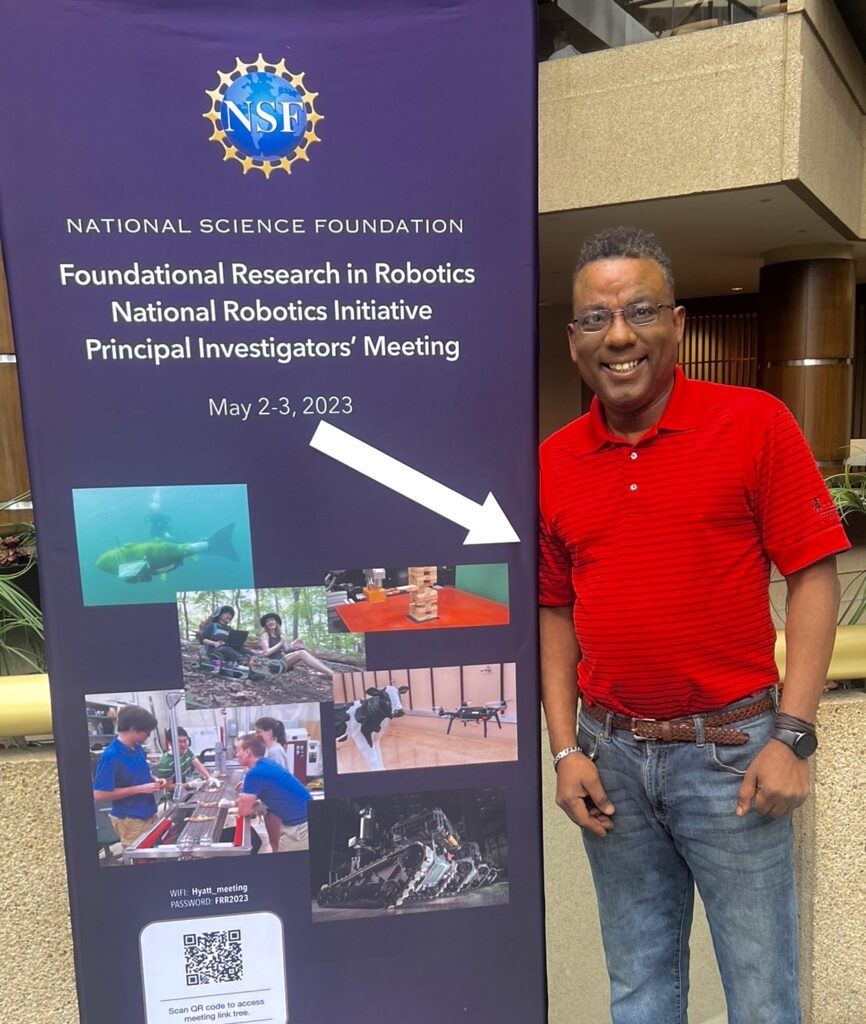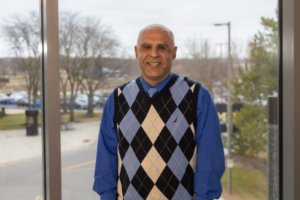Daba Coura Mbow

Mark Allison, associate professor of computer science, earned his undergraduate and master’s degrees in computer science at CUNY in New York. After working in industry, he opted to return to graduate school at Florida International University to pursue a Ph.D. in artificial intelligence and software engineering. Recently, after years of teaching and research at the UM-Flint, Dr. Allison took a sabbatical year at Carnegie Mellon University, hosted by CMU’s Robotics Institute. The experience sparked a renewed curiosity in robotics, especially in machine learning among robots working in teams. In this research, robots are conceived broadly as intelligence embedded within some engineered construct, in a way that the robot has some agency, and can perceive, formulate plans and alter its environment. As these systems of systems become more pervasive, the overarching question for Dr. Allison is, how can we achieve long-term learned robot behavior for optimized interaction with humans? This is referred to as human-centric social robotics.

He believes that robots are used predominantly in three categories of tasks: those that are risky for humans, those that humans cannot accomplish, and those that humans dislike. Aside from being precise and consistent, robots can work in any environment, increasing their functional flexibility. Robots, for example, may undertake perilous activities in hazardous situations, lowering the risk to human life. They thrive in tasks that are beyond human physical capabilities, such as lifting huge objects, handling poisonous substances, and performing excessively repetitious tasks without becoming bored. In medicine, robots aid humans during complex surgeries.
Our society is experiencing a computational revolution that requires us to reconsider practically every facet of society. The manner in which we work, play, and interact. The rapid rise of Artificial Intelligence and robotics is enabled by recent access to vast amounts of data and computation power. There are however significant challenges related to ethical and human dimensions of this change. Many observers are concerned about the impacts of this technological change on social interaction. Dr. Allison argues that his research promotes pro-social behaviors in robotics and fairness in artificial intelligence. We are essentially on the cusp of designing a new and artificial species with which we will share our planet. This responsibility should not be taken lightly. The driving principles should not be about replacing humans but freeing our time for higher-order human activities.

Robotics and AI should augment and amplify human potential, increase productivity, and allow for more humanitarian pursuits. We see the trend of moving from simple reasoning towards human-like cognitive abilities. The main question is will the robots be able to live with us? Professor Allison seeks to design learning models for intelligent social robots to understand and even predict our behavior in the workplace or in our homes. His current research is in “Distributed Machine Learning” which is a way to efficiently train AI models from data collected by teams of robots. His work has been funded by the National Science Foundation (NSF). He was recently invited to attend a meeting of researchers sponsored by the NSF Foundation for Robotics Research and The National Robotics Initiative in Arlington, Virginia, May 2 to May 3, 2023. The focus of this meeting was a national effort to promote US competitiveness by fostering collaboration among academic labs and identifying areas of science that require attention. Dr. Allison reports that the meeting was extremely productive for him as he was able to discuss and shape his ideas and strategy with like-minded researchers and with the NSF program officers.




